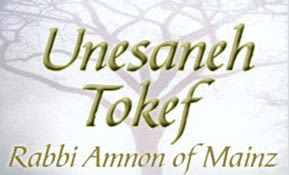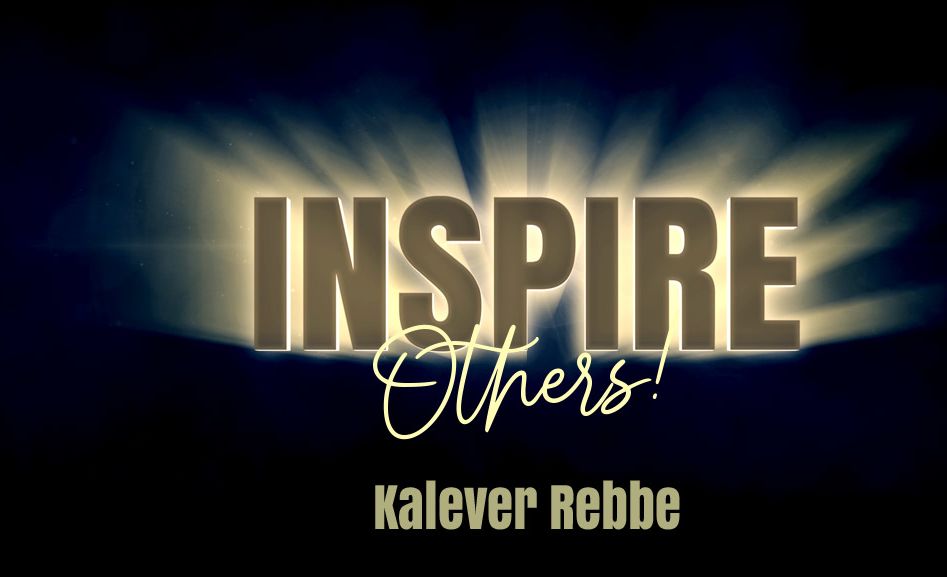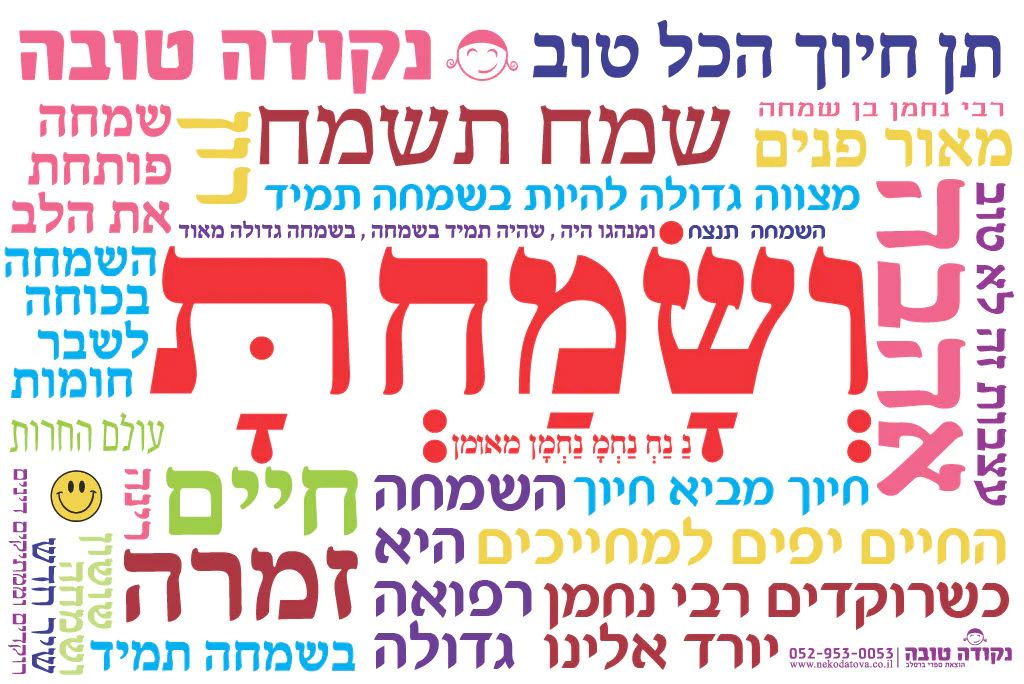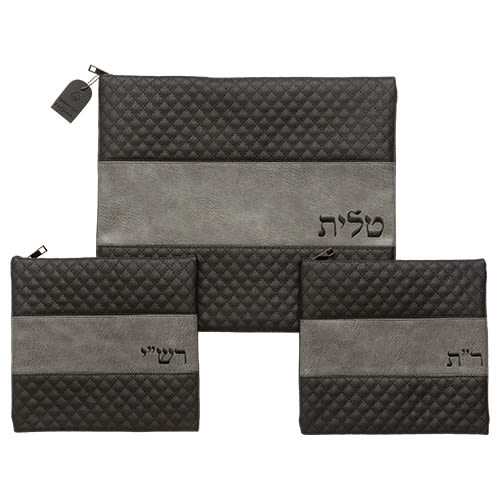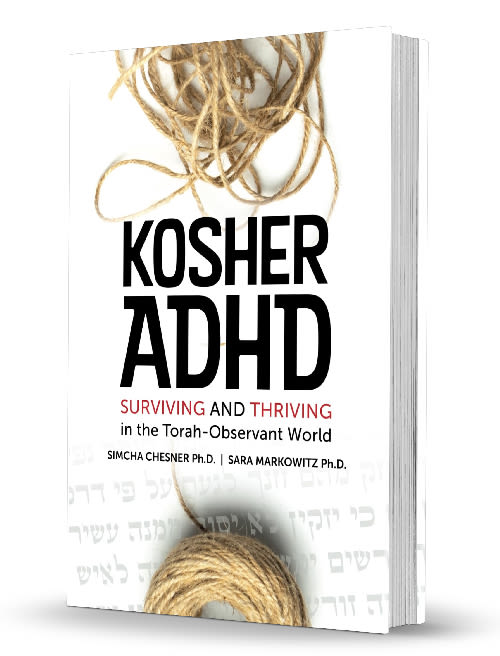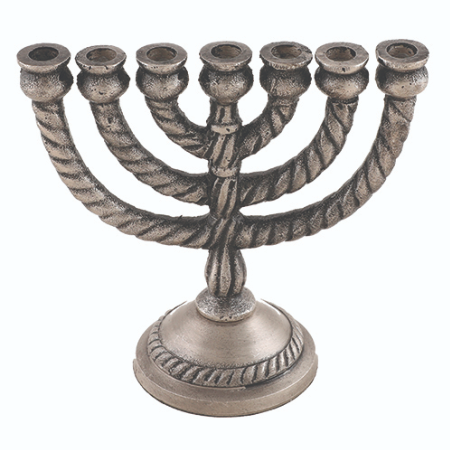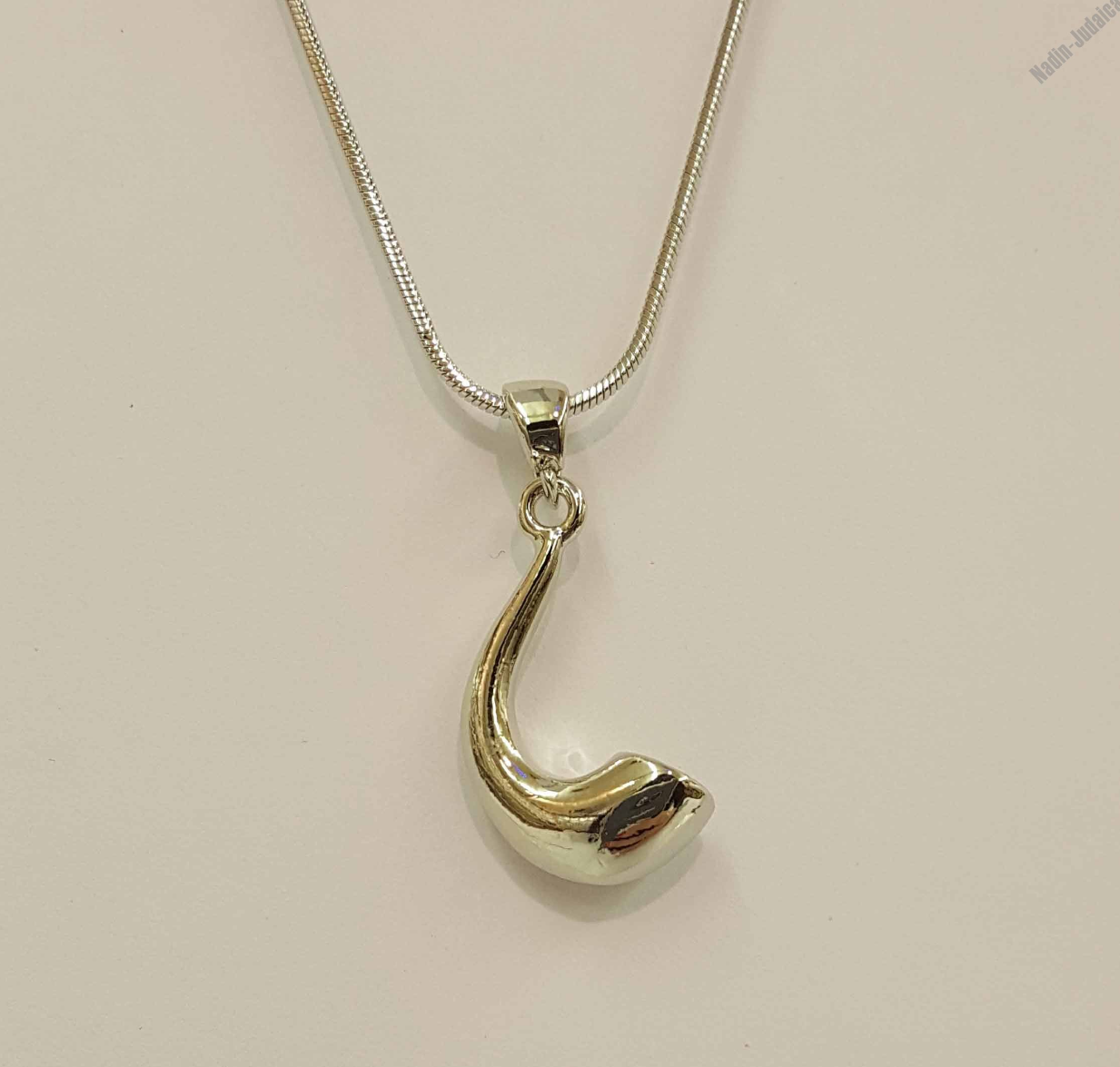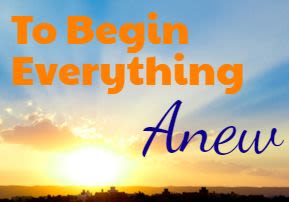
To Begin Everything Anew
It is such a chessed, kindness, that Hashem gave us the Day of Judgment! It is an opportunity to begin anew, to return to our Source in repentance…

“Of every finite thing I have seen the end; Your commandments are very broad” (Tehillim 119:96).
Everything comes to an end. Our world is not a continuous flow of time — without end, without meaning, without limit. A man’s days are numbered, with a beginning and an end, and the Creator, in His kindness, reminds us of this every year.
We stop and make a spiritually accounting. Where have we come from? Where are we going? From thinking about the end, we come to think of new beginnings, a new freshness in our deeds and our path in life. We step out of the rat race and contemplate life from a more objective stance, so that we can seek mercy for a new beginning, one that is better and holier.
Reb Nosson writes: “The main beginning is on Rosh Hashanah. The life force and tikun (rectification) for the entire year is drawn from Rosh Hashanah. This is why it is called Rosh Hashanah, since 'rosh' means ‘the head.’
“There are three levels: world, year, and soul (space, time, and the spirituality within). Regarding the level of the soul, which is the level of man, the main life force stems from the head, which contains the brain that invigorates the body, as is known… The entire body’s life force, to the extent of one’s toenails, comes from the brain. The brain is the dwelling of the neshama, Divine soul, which invigorates the entire body, each and every limb, according to what it needs.
“Similarly, this awesome and holy day is called Rosh Hashanah, the ‘head of the year,’ because the foremost ‘brains’ and life force for the entire year stems from Rosh Hashanah. All the tikkunim begin on Rosh Hashanah and Rosh Hashanah gives vitality to the entire year, just as a man’s head gives life force to his body. No limb has any feeling or life without the life force that comes from the head and the brain, as is known. In the same way, the days of the year receive all their life force and tikun from Rosh Hashanah, the head, that gives life force to every level” (Likutey Halachot, Yoreh Deah, Hilchot Orlah, 4, 18).
Rosh Hashanah is the ‘brain’ of the entire year. If the brain is holy, the entire year will be holy; if the brain is blessed, the entire year will be blessed.
It is such a chessed, kindness, that Hashem gave us the Day of Judgment! It is an opportunity to begin anew, to return to our Source in repentance, shake away sin, bid farewell to the tiredness that so often accompanies our day-to-day routine, and acquire a new ‘brain’— new thoughts, a new heart, and new desires.
Prepare!
For such a crucial day, we must start our preparations in advance.
“One must prepare himself during all the rest of the year for Rosh Hashanah, the Day of Judgment. We heard from his [Rebbe Nachman’s] holy mouth that the main thing is Rosh Hashanah…
“Just as a person must prepare himself his entire life for the awesome Day of Judgment in the future, so too, he must prepare himself the entire year for Rosh Hashanah, on a smaller scale… He should prepare himself especially when he sees the days are drawing nearer, from the 15th of Av” (Likutey Halachot, Orech Chaim, Brachot HaRi’ah, 5, 17).
Judgment and Mercy
In the Mussaf prayer of Rosh Hashanah we say, “This is the day of the beginning of Your creation, a remembrance to the first day.” On this day, the first of Tishrei, the first man was created, and the entire creation reached completion.
“Every Rosh Hashanah the events of the beginning of creation repeat themselves, as explained in the Arizal’s writings… The wondrous renewal that occurs on Rosh Hashanah resembles the beginning of creation, in the matter of sweetening the Attribute of Justice… To sweeten the might of judgment that is aroused on Rosh Hashanah, which is drawn from the concept, ‘In the beginning it rose in His thoughts to create the world in the Attribute of Justice,’ which is Rosh Hashanah” (Likutey Halachot, Hilchot Matanah, 5, 3).
“In the beginning God created the heavens and the earth” (Bereishit 1:1), and every Rosh Hashanah, Hashem creates them once again.
“God (Elokim) created — But it does not say ‘Hashem created’ (i.e., it should say ‘Hashem God created’ as below 2:4 ‘on the day that Hashem God made earth and heaven’)?” (Rashi, Bereishit 1:1).
Rashi answers his question, “In the beginning it was His intention to create it with the Divine Attribute of Justice (symbolized by the Name ‘Elokim’), but He perceived that the world would not endure; so He preceded it with the Divine Attribute of Mercy (symbolized by the Name ‘Hashem’), allying it with the Divine Attribute of Justice, and that is the reason it is written: ‘On the day Hashem God made earth and heaven’ (the combination of the two Names symbolizes the allying of Mercy with Justice).”
The Ohr HaChaim explains, “The ultimate purpose was that everything should stand solely on Justice.” Originally every individual was to be reviewed and judged based on his deeds alone, for good or the opposite, God forbid.
The Ohr HaChaim explains that the Attribute of Justice was later tempered with Mercy, “God saw the world could not endure in the Attribute of Justice, so He tempered it with Mercy. This means that He makes judgment in the way of mercy, and not that He changed His mind from His first intention, God forbid. For example, He does not punish a person entirely at once, or immediately without an extension of time. However, a man only has what is coming to him in justice.”
As we have learned, When the world was created it was supposed to be run solely by the attribute of strict Justice. The avoda, the service, of the tzaddikim, and our avoda as well, is to sweeten the Day of Judgment at its root, in a way that God will mitigate His justice with mercy. The Midrash says that when Avraham (Abraham) pleaded for mercy, he said to Hashem, “If You want justice, there will be no world. But if You want the world, there will be no justice” (Bereishis Rabbah 49, 20).
“The avoda of the great tzaddikim at all times, and especially on Rosh Hashanah, which is the beginning of creation… is to sweeten justice and draw mercy on Israel… For they are included in the Light of the Ein Sof (Infinite), where there is infinite mercy. Mainly, they do this on Rosh Hashanah… They draw new wondrous kindness on every Rosh Hashanah to nullify the Accusers from the blemishes of that year, until they sweeten all the judgments in the world, thus, they nullify all the troubles and suffering of Israel, and draw abundance and great goodness to the house of Israel” (Likutey Halachot, Hilchot Matanah, 5, 3).
Our Task
We must contribute our share to sweetening the judgment as well. We should avoid ayin hara (the evil eye), lashon hara (gossip and slander), anger, annoyance, and every bad thing, even in our thoughts, at all costs. Rebbe Nachman said: “On Rosh Hashanah we have to be wise, and think only good thoughts, so that Hashem will do good for His people” (Sichot HaRan).
“Rava said: Heaven forgives the sins of anyone who 'passes over' when he has a claim, as it is said: ‘Who is a God like You, Who forgives iniquity and passes over the transgression of the remnant of His heritage?’ (Michah 7). To whom does the Holy One forgive iniquity? To the one who passes over the transgression” (Megillah 28).
Rashi explains (ad. loc.): “One who 'passes over' — He is not exacting to pay back measure for measure to those who pain him, rather, he lets his claim go.”
“Heaven forgives the sins” — “The Attribute of Justice is not exact about his sins, rather, it lets them go…”
Because, on Rosh Hashanah, our good thoughts and words have such an impact, the yetzer hara, Evil Inclination, mixes in, causing people to become angry and sin. For this reason Rebbe Nachman cautioned, “On Rosh Hashanah, on the first day, one must reduce his speech very much.”
Judge Favorably
About judging others favorably and sweetening the judgment, Rebbe Nachman writes, “I heard in the name of the Baal Shem Tov that before any decree is made in the world, God forbid, they gather all the people and [ask them] if they agree to this judgment. Even the person upon whom the judgment is made, God forbid, is asked. If he agrees, then the judgment is finalized, God forbid.
“Certainly, if he were asked explicitly about himself, he would deny it and say that the judgment should not be so. However, they trick him and ask him about someone else who is in similar circumstances and he decides the judgment. (In other words, he encounters a similar incident involving someone else, and they listen to the judgment he pronounces on his fellow. This becomes his judgment.)
“We must be very careful about this, and not finalize [our judgment] until we consider two or three times, for it is a life threatening danger” (Likutey Moharan 113).
When we judge our fellow man according to the strict letter of the law, we are actually judging ourselves. Therefore, on the Day of Judgment, we should be especially cautious in our thought and speech. We should join together with the tzaddikim, who are very busy trying to turn the judgment into mercy.
Accepting Hashem's Sovereignty
How do we turn the attribute of judgment into mercy? Through humbling ourselves and accepting Hashem’s sovereignty. When we put our life, our actions, and the entire world into God’s hands, we are in effect surrendering ourselves to His absolute mercy. We rely upon Him that our judgment will be favorable.
“For then, on Rosh Hashanah, the first day of the Ten Days of Repentance, the main repentance is to repent from arrogance, to humble oneself and to feel lowly and truly deficient… Therefore, we need to nullify ourselves completely… This means to remove our opinions and nullify ourselves completely, as if we had no opinion at all.
“We have to accept His sovereignty with perfect faith and with complete simplicity, without any cleverness – this is our main avoda on Rosh Hashanah and Yom Kippur” (Likutey Halachot, Hilchot Netillat Yadai’im, Shacharit 3:5).
“This is the aspect of Rosh Hashanah and Yom Kippur, for then we are occupied in revealing His sovereignty, and in illuminating the world with this knowledge. We inform mankind that there is a God Who rules over the world, and this is our main occupation and avoda on Rosh Hashanah and Yom Kippur.
“As we say in the prayers: ‘Now, Hashem our God, put Your awe upon all whom You have made, Your dread upon all whom You have created; let Your works revere You, let all Your creatures worship You; may they all blend into one brotherhood to do Your will with a perfect heart… You shall reign over all whom You have made, You alone, Hashem, on Mount Tzion, the abode of Your majesty… and there is no God but You,’ and many more like these, for the main revelation of His Kingdom is then” (Likutey Halachot, Cheizkat Metaltilin 3,9).
On Rosh Hashanah, we do not mention our righteousness, nor do we ask of anything for ourselves. We nullify ourselves completely and focus on the greatness of our Master. “Everywhere you find the Holy One’s might – there you shall find His humility” (Megillah 31). The more we are privileged to know His greatness, the more He will reveal His mercy, His true greatness, more and more, upon us and upon all His creation.
(From: www.levhadvarim.com)


